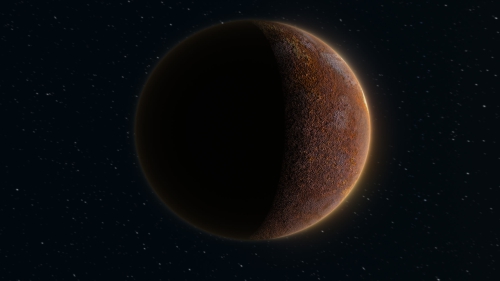What is the SELF?

The Qur'an is a dynamic and intrusive text that constantly seeks to engage with the inner dispositions of man. The Qur'an achieves this by asking profound questions concerning natural phenomena, life and the universe. However the Qur'an does not stop at addressing these themes, it also asks about man himself. Who is he? Where is he going? What is he? It eloquently asks the question "Do they not reflect within themselves?"[1]
The above verse doesn't only refer to the human body but refers to ourselves in general which includes physiological and psychological dimensions. We often contemplate and reflect on the universe outside of ourselves, but we seldom meditate on the micro-universe within ourselves. Although there is so much to write about concerning human physiology, the purpose of this article is to discuss one of the most important oversights of our thinking: the self.
Human beings experience things all the time, this note you are reading is an experience and even talking about your experience is an experience. However the ultimate reality that we know from any experience is the experiencer itself, in other words ourselves. When we realise that there is a first-person, an "I", "me" or "mine" we come to face a profound mystery, the Philosopher Roy Abraham Varghese puts it nicely, he writes, "To reverse Descartes, 'I am, therefore I think...' Who is this 'I'? 'Where' is it? How did it come to be? Your self is not just something physical."[2]
The self is not a physical thing; it is not contained in any cell or biological structure. The most unchallenged and intuitive reality is that we are all aware, but we cannot describe or explain what this awareness is. One thing that we can be sure of is that the self cannot be explained biologically or chemically, the main reason for this is that science doesn't discover the self; it's actually the other way round. For science to try and explain the truth of the self would be tantamount to arguing in a circle! Even scientists recognise this, the physicist Gerald Schroeder points out that there is no real difference between a heap of sand and the brain of an Einstein. The advocates of a physical explanation for the self end up in a muddle as they require answers to even bigger questions such as 'how can certain bits of matter suddenly create a new reality that has no resemblance to matter?'
So if the self cannot be explained physically then the next question must be asked, 'how did it come to be?' The history of the universe indicates that consciousness just spontaneously arose and language emerged without any evolutionary forerunner. So where did it come from? Even the neo-atheists have failed to come to terms with the nature of the self and its source, because no physical explanation is coherent enough to convince. The best-seller and popular atheist Richard Dawkins almost admits defeat concerning the self and consciousness, he states "We don't know. We don't understand it."[3]
The best explanation for the nature and source of the self is that it came from a source that is thinking, aware and conscious. How else can the self, which is an entity with a capacity to reflect and experience, manifest itself? It cannot have come from unconscious matter incapable to experience and ponder. Simply put matter cannot produce concepts and perceptions, therefore we can conclude that the self cannot have a material basis but must have come from a living source that transcends the material world; and this is best explained by God. No other answer provides an adequate explanation for this phenomenon.
Notes:
- Qur'an 30:8
- There is a God: How the World's Most Notorious Atheist changed his Mind. Anthony Flew with Roy Abraham Varghese. Appendix A, p 180.
- Richard Dawkins and Steeve Pinker, "Is Science Killing the Soul?" The Guardian-Dillons Debate, Edge 53. April 8, 1999.
Hamza Andreas Tzortzis is an international public speaker on Islam, a writer, lecturer and intellectual activist. He is particularly interested in Islam, politics, western and islamic philosophy. Hamza has debated prominent academics and intellectuals and delivers presentations across the world on various topics. Hamza is one of the main initiators of the contemporary emergence of Muslim public debaters and speakers using western and islamic philosophy to defend and explain Islam.
You can visit his blog at: http://hamzatzortzis.blogspot.com/
Topics: Islam And Science, Science And Technology
Views: 5310
Related Suggestions

















